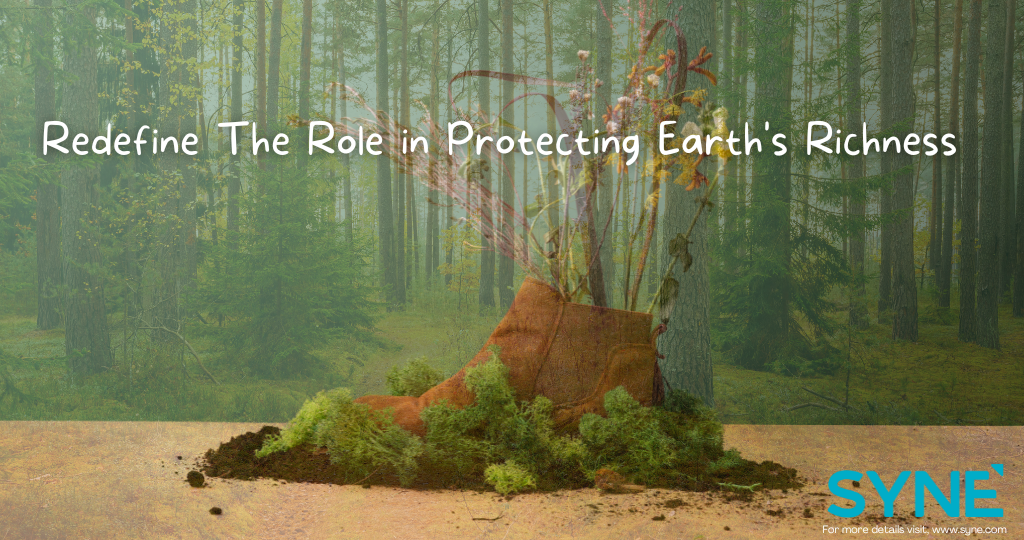Biosphere Reserves - Redefine Their Role in Protecting Earth's Richness
Environment
CREATED
29 Nov 2023
syne.com/story/biosphere-reserves-re...
Exploring the Significance of Biosphere Reserves: Balancing Conservation and Development
Biosphere reserves stand as remarkable testaments to humanity's commitment to preserving biodiversity while promoting sustainable development. These reserves, designated by UNESCO (United Nations Educational, Scientific and Cultural Organization), encapsulate the delicate balance between nature conservation, economic development, and community involvement.
Acting as pockets of hope in the face of the climate crisis, these reserves are hidden oases, protecting biodiversity, reducing pollution, and enhancing climate resilience. They are living jewels of land, coastal and marine ecosystems, scattered across the globe, where nature and humans come together creating a symphony of life.
What are Biosphere Reserves?
Biosphere reserves are designated areas that represent a mosaic of ecosystems. They encompass terrestrial, marine, and coastal ecosystems, integrating conservation zones with areas for sustainable use. Each reserve consists of three interlinked zones:
1. Core Area: This section is strictly preserved to safeguard ecosystems, species, and genetic variation. Human interference is minimal or absent in this zone, allowing nature to thrive undisturbed.
2. Buffer Zone: Surrounding the core area, the buffer zone facilitates sustainable activities, research, and education. Human activity here is controlled to minimize impact on the core area.
3. Transition Area: This outermost zone includes human settlements and managed activities. It aims for sustainable development through economic and cultural endeavours while fostering environmental awareness and cooperation.
Objectives and Importance
Away from the cacophony of urban life, most of us look for respite in sites with natural beauty, lush greenery, and peaceful surroundings. As the tourist season approaches, it is no surprise that while we search for unpolluted spots to explore, unconsciously our consumption of single-use plastic, in particular plastic water bottles, will also significantly increase.
The primary goal of biosphere reserves is to promote biodiversity conservation, sustainable development, and support for local communities. These reserves serve as living laboratories where innovative approaches to conservation and development are tested and refined.
Conservation: Biosphere reserves protect critical habitats, endangered species, and preserve genetic diversity. By safeguarding ecosystems, they contribute to mitigating climate change and maintaining ecological balance.
Sustainable Development: Integrating human activities with nature, biosphere reserves emphasize sustainable land and resource management. They encourage practices like agroforestry, eco-tourism, and responsible fisheries, fostering economic growth without compromising environmental integrity.
Community Engagement: Local communities play a pivotal role in biosphere reserves. Their involvement in decision-making processes ensures that conservation efforts align with their needs and traditions. Education and capacity-building programs empower residents to become stewards of their environment.
Notable Biosphere Reserves
- Monte Verde Biosphere Reserve (Chile): Known for its diverse ecosystems, this reserve showcases sustainable tourism and agriculture practices, balancing conservation with local development.
- Sundarbans Reserve (India/Bangladesh): A UNESCO World Heritage Site, it harbours the world's largest mangrove forest and supports a unique biodiversity, including the Bengal tiger.
- Yellowstone Biosphere Reserve (USA): The first designated biosphere reserve, it encompasses a wide range of ecosystems, contributing significantly to biodiversity conservation and scientific research.
Biosphere reserves epitomize the harmonious coexistence between humans and nature. They serve as models for sustainable development, emphasizing the crucial link between conservation, economic prosperity, and community involvement. As guardians of biodiversity and sustainability, these reserves inspire global efforts toward a more balanced and harmonious relationship with the natural world.
In essence, biosphere reserves stand not only as protected areas but as living examples of humanity's commitment to preserving the planet for future generations.





View Comments